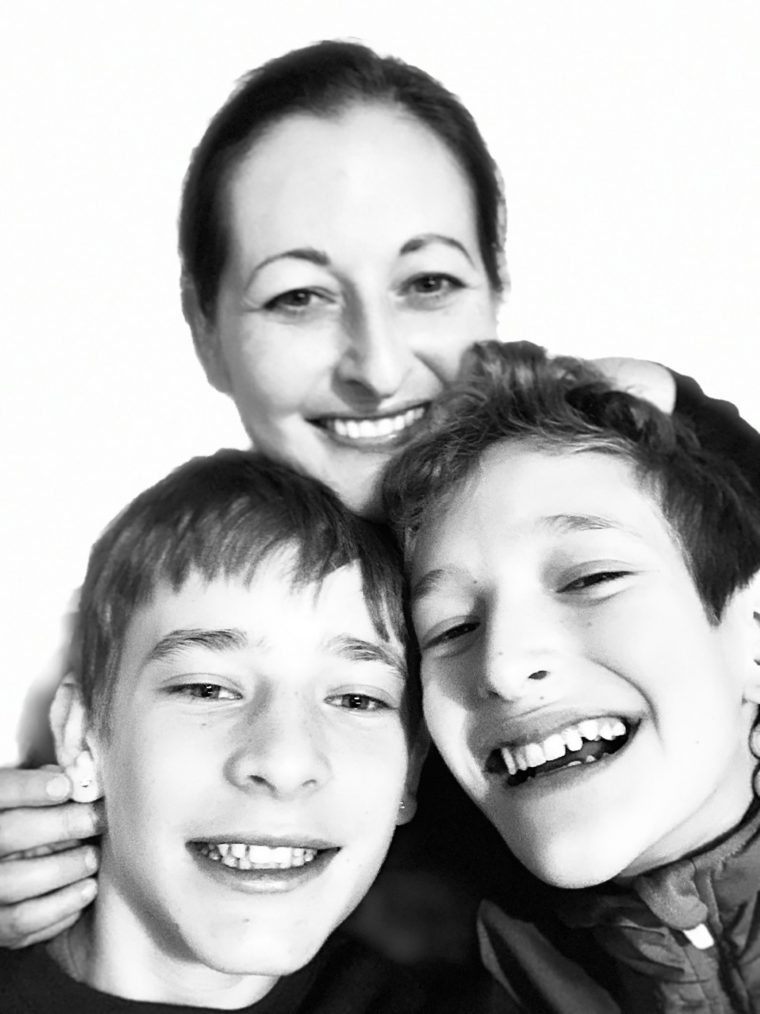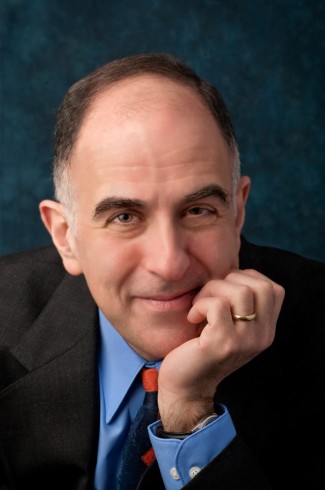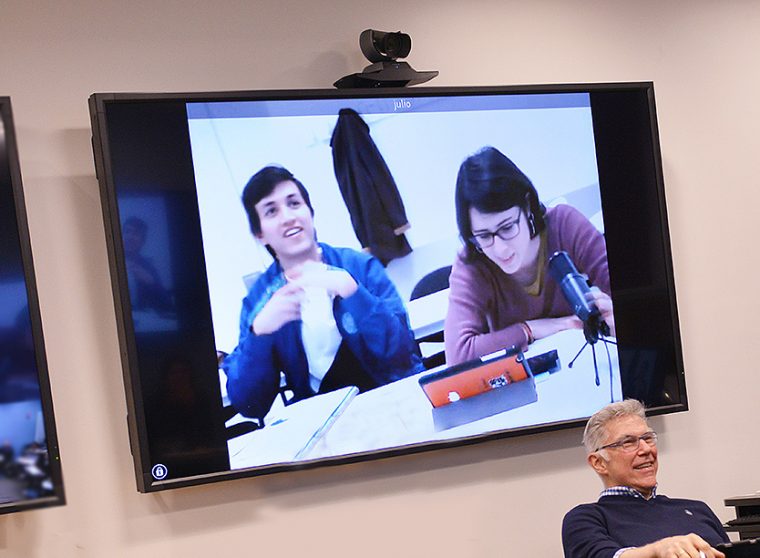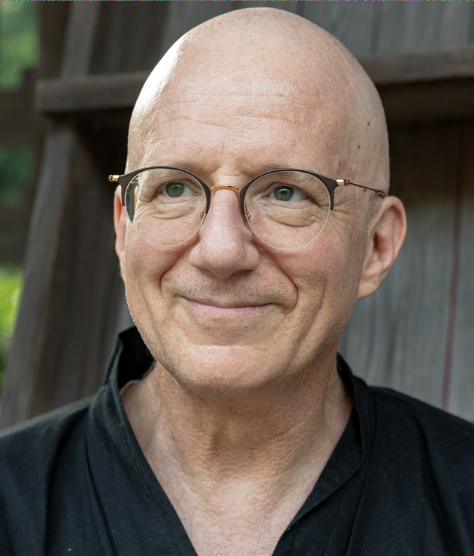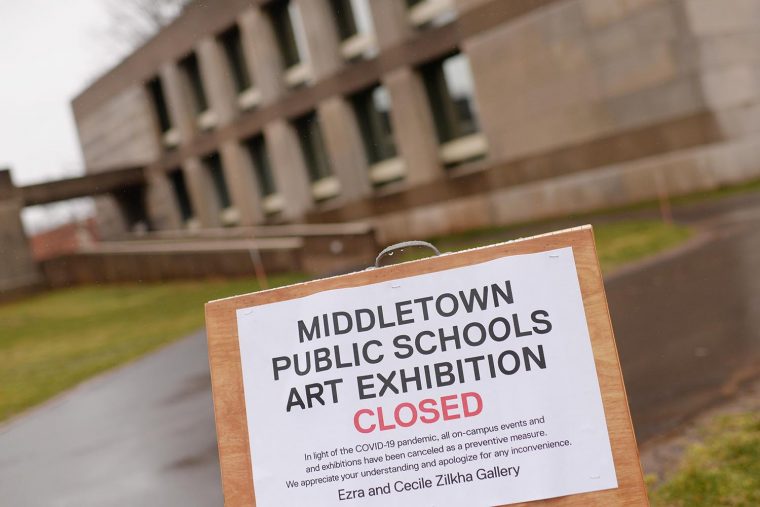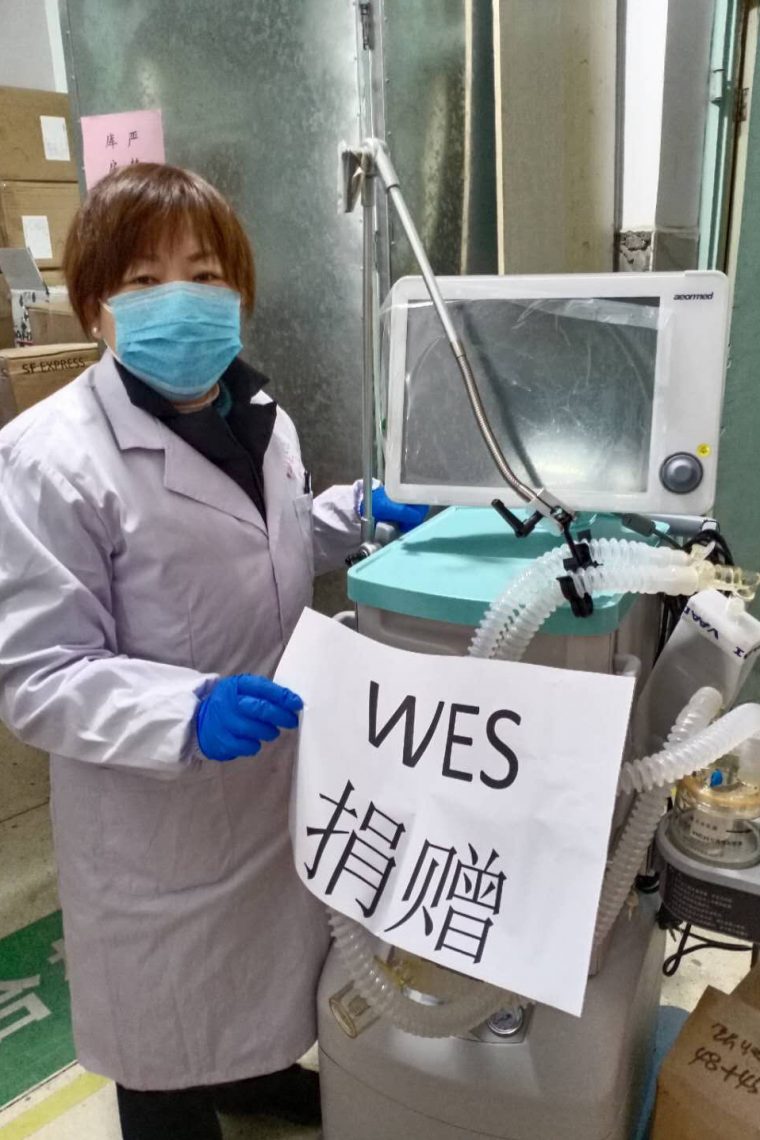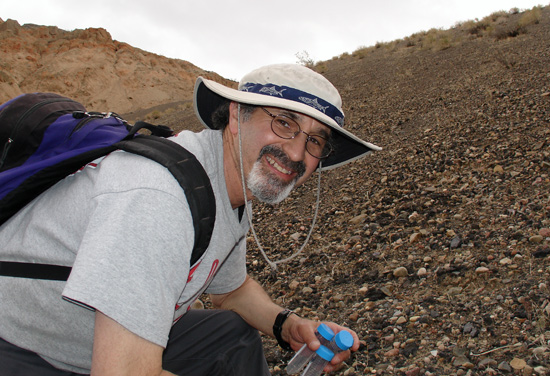Anna Shusterman, associate professor of psychology and co-coordinator of education studies, studies learning and conceptual development in children. In this Q&A, we asked her for advice for families on transitioning children to distance learning during the COVID-19 outbreak. Q: How should parents talk to kids about what’s happening in the world and why their daily lives look so different? A: Full disclosure: I am not a clinician. However, as a parent and a research psychologist, I think it’s important for parents to validate their children’s emotions rather than dismissing them or telling them they are being silly. It’s also important…
Richard Grossman, professor and chair of economics, is an expert in economic history as well as current policy issues in macroeconomics, banking, and finance. In this Q&A, we asked him about the economic fallout from the coronavirus pandemic, and how the government is responding in efforts to mitigate the damage. Q: We’ve all seen the headlines about a coronavirus-induced recession. What is the current state of the economy, and what do you predict we’ll see over the coming months? A: Prior to the virus outbreak, the American economy was doing well by conventional standards. The unemployment rate was 3.5% in…
The central consideration for Wesleyan’s faculty and administration during the transition to a distance-learning model as a result of the threat of COVID-19 has been how best to support students (particularly those who are high-need or have extenuating personal circumstances) and ensure the continuity of their Wesleyan experience. “We say we’re a caring community,” President Michael Roth ’78 noted in an all-staff call on Tuesday, March 17. “Now is the time to prove that. We are practiced at pulling together, usually on joyous occasions. But right now, we have to prioritize flexibility for our students, faculty, and staff so that…
William Johnston, the John E. Andrus Professor of History, is a historian who studies disease and medicine, with expertise in epidemics of infectious diseases. In this Q&A, Johnston discusses the novel coronavirus outbreak and what can be learned from the past. Q: How and when did you start studying the history of disease and medicine? A: About 30 years ago, I wrote my dissertation on the subject, which became my first book, The Modern Epidemic: A History of Tuberculosis in Japan. Around that time, people were starting to consider epidemics of infectious diseases a thing of the past that were…
For the safety of the campus community, amid the Centers for Disease Control and Prevention reporting thousands of known cases of the novel coronavirus (COVID-19) nationwide, Wesleyan is transitioning all classes to distance-learning models for the remainder of the spring semester. "As hard as we work to make the on-campus Wesleyan experience the best it can be, we must apply that same diligence and care to protecting our community’s well-being in light of this growing threat," said Wesleyan President Michael Roth '78 in a campuswide email. While there are no confirmed cases at Wesleyan, there are five confirmed cases in…
Wesleyan's Chinese community (particularly students and parents) recently banded together to help their fellow citizens who are battling with the novel coronavirus, or COVID-19. From Feb. 2–15, the student-initiated group WesInAction raised more than $23,000, which was used to purchase medical equipment for hospitals affected in the epicenter of the outbreak, Hubei province, China. WesInAction members also provide the campus community with facts about the outbreak and its prevention, and work to promote awareness of racial discrimination on campus. WesInAction student volunteers have done extensive research on COVID-19 and created a brochure that highlights key facts and statistics about it,…
Wesleyan faculty frequently publish articles based on their scholarship in The Conversation US, a nonprofit news organization with the tagline “Academic rigor, journalistic flair.” In this article, Fred Cohan, professor of biology, Huffington Foundation Professor in the College of the Environment, PhD student Kathleen Sagarin, and Kelly Mei ’20 explain how viruses like coronavirus—and several others over history—spread from animals to humans, what determines the size of the outbreak, and how behavioral modifications and technology can stop the spread. A clue to stopping coronavirus: Knowing how viruses adapt from animals to humans As the novel coronavirus death toll mounts, it is…


